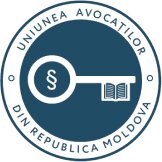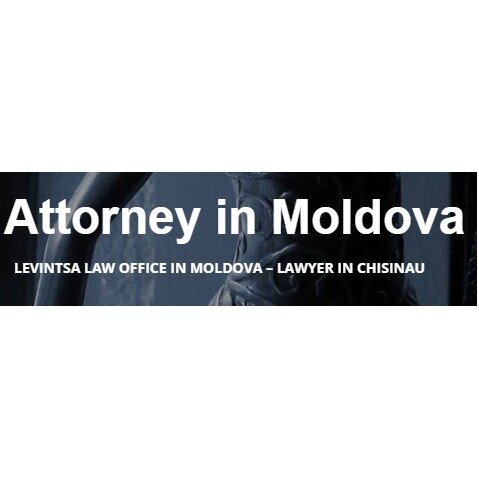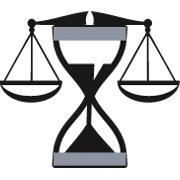Best Guardianship Lawyers in Republic of Moldova
Share your needs with us, get contacted by law firms.
Free. Takes 2 min.
Or refine your search by selecting a city:
List of the best lawyers in Republic of Moldova
About Guardianship Law in Republic of Moldova
Guardianship in Republic of Moldova is a legal relationship created by the court that appoints a guardian to make decisions for a person who is unable to make their own decisions due to age, disability, or incapacity. The guardian is responsible for making decisions related to the person's healthcare, finances, and personal well-being.
Why You May Need a Lawyer
You may need a lawyer for Guardianship in Republic of Moldova if you are seeking to establish or challenge a guardianship arrangement, if you are involved in a dispute over guardianship decisions, or if you need assistance with the legal process involved in becoming a guardian or appointing a guardian for someone else.
Local Laws Overview
In Republic of Moldova, the Civil Code and the Family Code govern the rules related to Guardianship. The court appoints guardians based on the best interests of the person in need of guardianship. The guardian must act in the best interests of the person under guardianship and report regularly to the court on their decision-making.
Frequently Asked Questions
1. What is the difference between guardianship and custody in Republic of Moldova?
In Republic of Moldova, guardianship is typically for individuals who cannot make decisions for themselves due to age, disability, or incapacity. Custody, on the other hand, is usually related to the care and upbringing of children.
2. How can I become a guardian in Republic of Moldova?
To become a guardian in Republic of Moldova, you must petition the court and demonstrate your ability to act in the best interests of the person in need of guardianship. The court will then appoint you as a guardian.
3. Can I challenge a guardianship decision in Republic of Moldova?
Yes, you can challenge a guardianship decision in Republic of Moldova by petitioning the court and providing evidence that the current guardian is not acting in the best interests of the person under guardianship.
4. What are the responsibilities of a guardian in Republic of Moldova?
The responsibilities of a guardian in Republic of Moldova include making decisions related to the person's healthcare, finances, and personal well-being, and reporting regularly to the court on their decision-making.
5. How long does a guardianship last in Republic of Moldova?
A guardianship in Republic of Moldova typically lasts until the person under guardianship is able to make decisions for themselves, or until the court determines that a guardianship is no longer necessary.
6. Can I appoint a guardian for myself in Republic of Moldova?
Yes, you can appoint a guardian for yourself in Republic of Moldova by petitioning the court and demonstrating that you are unable to make decisions for yourself due to age, disability, or incapacity.
7. What is the role of the court in guardianship decisions in Republic of Moldova?
The court in Republic of Moldova appoints guardians based on the best interests of the person in need of guardianship, and oversees the decisions made by the guardian to ensure they are acting in the person's best interests.
8. Can a guardian in Republic of Moldova be removed from their position?
Yes, a guardian in Republic of Moldova can be removed from their position if they are found to be acting against the best interests of the person under guardianship, or if they are no longer able to fulfill their responsibilities as a guardian.
9. Is guardianship the same as power of attorney in Republic of Moldova?
No, guardianship and power of attorney are not the same in Republic of Moldova. Guardianship is typically for individuals who are unable to make decisions for themselves, while power of attorney is a legal document that allows someone to make decisions on behalf of another person.
10. How can I find a lawyer for Guardianship in Republic of Moldova?
You can find a lawyer for Guardianship in Republic of Moldova by contacting the Moldovan Bar Association or seeking recommendations from friends, family, or other legal professionals.
Additional Resources
For more information on Guardianship in Republic of Moldova, you can contact the Ministry of Justice or the Moldovan Association for the Protection of Rights of People with Disabilities.
Next Steps
If you need legal assistance with Guardianship in Republic of Moldova, it is recommended to consult with a lawyer who specializes in family law and has experience with Guardianship cases. They can provide you with guidance on the legal process and help you navigate the complexities of Guardianship law in Republic of Moldova.
Lawzana helps you find the best lawyers and law firms in Republic of Moldova through a curated and pre-screened list of qualified legal professionals. Our platform offers rankings and detailed profiles of attorneys and law firms, allowing you to compare based on practice areas, including Guardianship, experience, and client feedback.
Each profile includes a description of the firm's areas of practice, client reviews, team members and partners, year of establishment, spoken languages, office locations, contact information, social media presence, and any published articles or resources. Most firms on our platform speak English and are experienced in both local and international legal matters.
Get a quote from top-rated law firms in Republic of Moldova — quickly, securely, and without unnecessary hassle.
Disclaimer:
The information provided on this page is for general informational purposes only and does not constitute legal advice. While we strive to ensure the accuracy and relevance of the content, legal information may change over time, and interpretations of the law can vary. You should always consult with a qualified legal professional for advice specific to your situation.
We disclaim all liability for actions taken or not taken based on the content of this page. If you believe any information is incorrect or outdated, please contact us, and we will review and update it where appropriate.
Browse guardianship law firms by city in Republic of Moldova
Refine your search by selecting a city.











